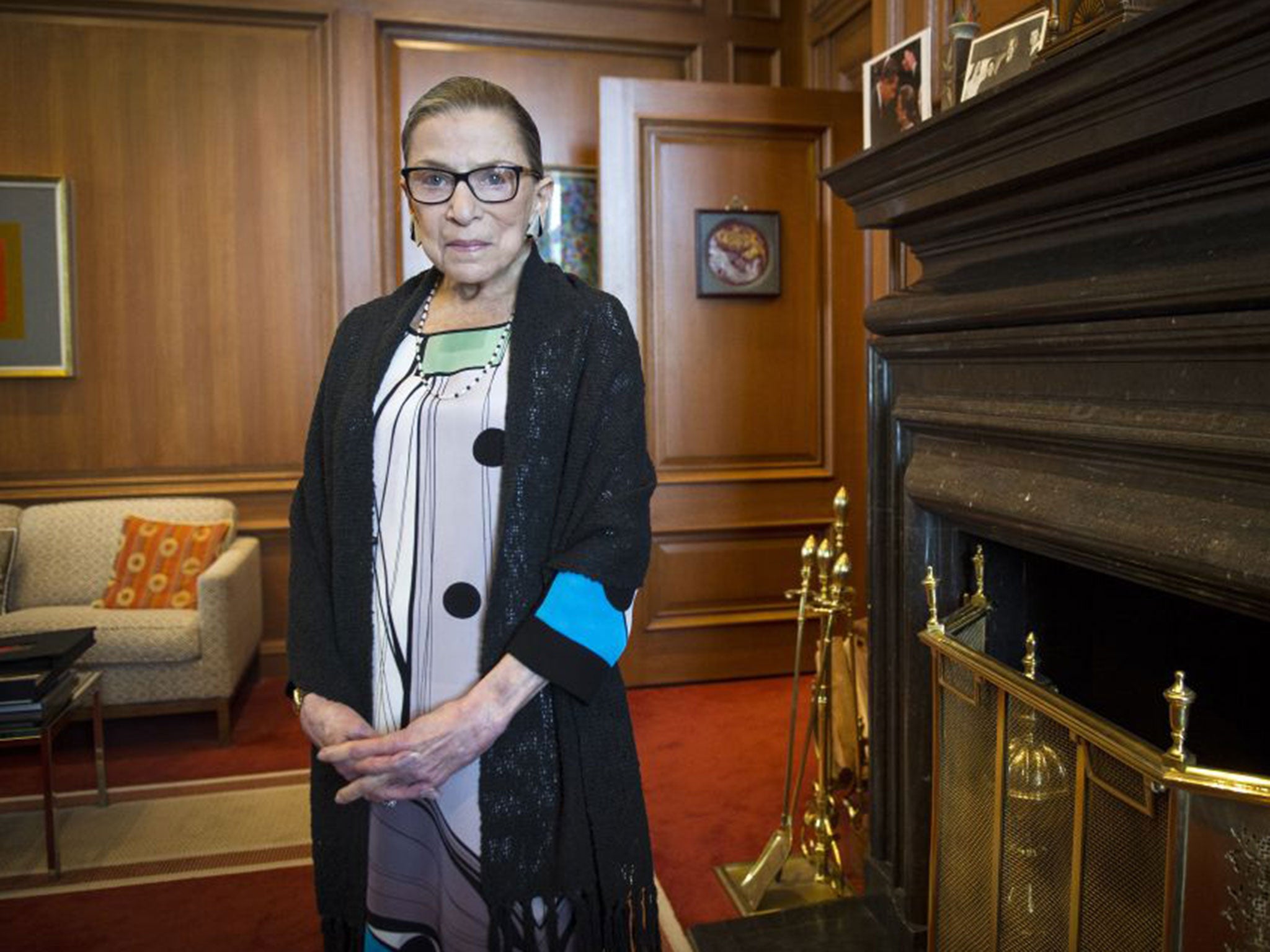Ruth Bader Ginsburg’s death is a terrible opportunity for Trump
What happens next will affect generations to come — and that is deeply, deeply scary


Sometimes it felt like she was America’s last hope. Ruth Bader Ginsburg, Supreme Court judge since 1993, achieved celebrity status during Trump’s four years. Affectionately given the nickname “Notorious R.B.G” by a slew of online followers, she was the subject of superhero memes and the inspiration for much light-hearted merchandise (Urban Outfitters stocks T-shirts emblazoned with her face and her famously blunt quotes, and I gifted a friend in Brooklyn a cuddly Ginsburg doll for her newborn last year.)
Beneath the jokes, the quotes and the well-designed tote bags, however, ran an undercurrent of anxiety and fear. The fact that Supreme Court judges have lifetime appointments meant that many were morbidly obsessed with Ginsburg — who battled cancer on numerous occasions, and died of its complications today — staying alive long enough to get to the election. She herself clearly felt the same way, if NPR’s reports about her dying wishes are to be believed: “My most fervent wish is that I will not be replaced until a new president is installed,” she apparently said not long before passing away aged 87. She was only the second woman appointed to the Supreme Court.
And there’s no getting round it: Ginsburg’s death is a terrible opportunity for Donald Trump. With a new seat on the court vacant so close to the election, he can make a song and dance about his legacy and his future promises by installing an extreme conservative. At the Republican Convention a few weeks ago, the President dedicated an entire night to the “pro-life” cause, bringing in speakers who waxed lyrical about his “concern for the unborn” and making allusions toward overturning Roe v Wade once and for all. Ginsburg’s death puts women’s rights in grave danger — not to mention the rights of many others who are historically overlooked or targeted by the ultra-right wing.
This is because Trump’s supporters are now, quite frankly, fringe conservatives who are happy to do away with established legal interpretation in the United States. Many have spoken about “reinterpreting” or “kicking out” the Fourteenth Amendment of the Constitution, which gives everyone born on US soil automatic citizenship. It’s true that lifelong Republican politicians are walking away from Trump’s presidency and distancing themselves as polls point toward a possible Biden win — the Lincoln Project and a slew of disgruntled former staffers are testament enough to this — but the president has responded by digging his heels in and attempting to galvanize enough extreme conservatives to make up the numbers. Replacing Ginsburg while working to this playbook will be damaging for America in the long term, far beyond any presidential term Trump might legally hold; it will mean that the 45th President leaves a damaging legacy behind him for generations to come.
Back in August, Republicans were asked what they would do if a Supreme Court seat “became vacant” this year, before Trump’s election. “Oh, we’d fill it,” said Mitch McConnell, reportedly with a smile. McConnell is close to Trump and was highly praised for his loyalty during the impeachment, but not every member of his party felt the same way as him. Notably, Lisa Murkowski, the Republican senator from Alaska, has said publicly that her party would need to “let the people decide” on election day if a seat became vacant months away from November. When then-President Obama tried to replace Supreme Court Judge Antonin Scalia after Scalia’s death in the February before the 2016 election, the move was blocked by Republicans specifically because, they argued, it was undemocratic to make a lifetime appointment so close to an election. “If we now say that months prior to the election is OK when nine months was not, that is a double standard and I don’t believe we should do it. So I would not support it,” Murkowski said. She has not yet commented now that Ginsburg has passed away. McConnell, however, just made a statement saying that he fully intends on keeping his own promise: “President Trump’s nominee will receive a vote on the floor of the United States Senate,” he said tonight, in a speech which also briefly honored Ginsburg’s contribution to the court.

Trump has never been humbled by the office or cowed by a memento mori. “He didn’t come to my inauguration,” he said, of celebrated civil rights activist John Lewis. “I was never a fan and I never will be,” he said, of Vietnam War veteran and across-the-aisle friend of Joe Biden’s, John McCain. About Ginsburg, in comparison, he was positively kind: “She just died? Wow. I didn't know that. She led an amazing life. What else can you say?” he said, ever erudite, when informed of her death by a reporter on-air, moments after emerging from a two-hour rally.
Presented with Ginsburg’s death — and comments on her “amazing life” aside — few of us believe that the President and his ardent supporters in Congress will make the decent move, the sportsmanlike move, or the move for which there is precedent. This is a delicious opportunity handed to that side of the party on a golden platter, weeks before Americans go to the polls. But will all Republicans so easily follow McConnell’s lead? Is there scope for a risky mutiny in the ranks, wherein four GOP senators vote with the Democrats and force a block or delay to the nomination? No doubt we’ll find out soon enough. And whichever way it goes, it promises to be messy.
Join our commenting forum
Join thought-provoking conversations, follow other Independent readers and see their replies
Comments
Bookmark popover
Removed from bookmarks